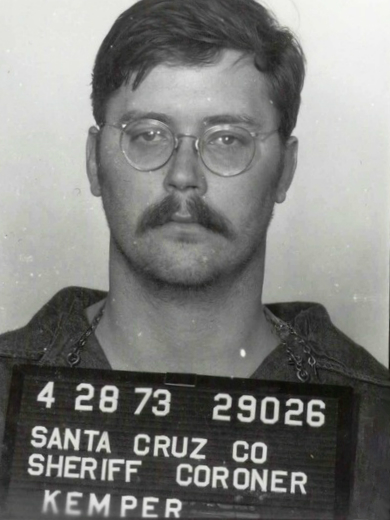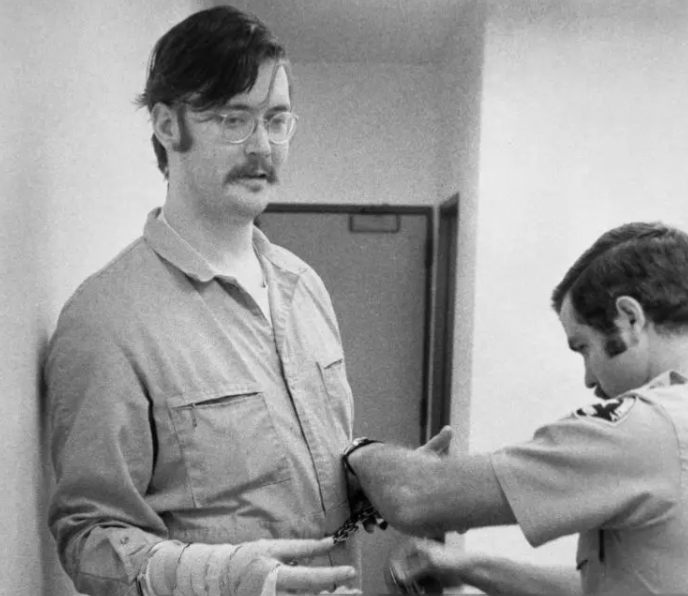5 Shocking Edmund Kemper Quotes That Reflect a Disturbing Insight into the Mind of a Killer (18+)
Key Takeaways
- Edmund Kemper’s quotes provide a harrowing look into the mindset of a serial killer.
- Understanding his background and crimes can offer insight into the development of a killer’s psyche.
- Kemper’s own words can be a tool for criminal psychology and law enforcement training.
- His chilling statements serve as a stark reminder of the consequences of untreated mental illness and childhood trauma.
- While disturbing, these quotes shed light on the importance of early intervention and the complexities of the human mind.
Exploring the Roots of Monstrosity: Understanding Kemper’s Background and Crimes
Edmund Kemper, known as the “Co-Ed Killer,” was a notorious figure in the 1970s who committed brutal murders, victims of which included his own mother and grandparents. He was also known to have murdered a 15-year-old girl and her best friend. Kemper’s victims were mostly non-familial female college students hitchhiking in Santa Cruz County. He was sentenced to eight concurrent life sentences in 1973. Kemper requested the death penalty, but this was not possible as capital punishment was not allowed in California at the time. To understand the magnitude of his deeds, we must first understand the man behind the monstrosity.


Kemper was born on December 18, 1948, in Burbank, California. After his parents’ divorce in 1957, he moved with his mother and two sisters to MontanaStanding at 6 feet 9 inches tall, Kemper’s presence was immense and his actions were calculated and executed with a cold detachment. A tumultuous relationship with his mother and early signs of violent tendencies marred him from childhood. His quotes offer insights into psychology and the importance of early intervention. By exploring his thoughts, we can better understand and prevent future atrocities, ensuring that we approach this topic with caution and an eagerness to learn.
5 Shocking Edmund Kemper Quotes That Reflect a Disturbing Insight into the Mind of a Killer (18+)
Now, brace yourselves as we step into the psyche of Edmund Kemper. Each quote is a piece of a larger, more disturbing puzzle. Remember, these words are not for the faint of heart. They are a raw and unfiltered journey into darkness.
1. “I just wanted to see how it felt to shoot Grandma.”
This quote is a stark example of Kemper’s disconnection from the value of human life and a foreshadowing of the violence that was to come. Kemper’s descent into murder began with his grandparents. At the tender age of 15, he shot them both, later explaining his actions with a chilling lack of remorse.
2. “The first good-looking girl I see tonight is going to die.”
This statement highlights not only the randomness of his victim selection but also the premeditated nature of his actions. As Kemper’s killing spree continued, his methods became more gruesome and his rationale more detached. He flippantly described his process in a way that is both methodical and deeply unsettling.

3. “It was like being in jail… I became a walking time bomb and I finally blew.”
His self-awareness about his dangerous potential suggests he felt compelled to kill. He also attempted to likening it to an uncontrollable force. Kemper’s confessions reveal his relentless urge to kill. He likened it to having his own desires imprison him. He describes his actions as premeditated, not impulsive, and used his outwardly harmless appearance to lure victims.
4. “At first I picked up girls just to talk to them, just to try to get acquainted with people my own age and try to strike up a friendship.”
What started as a seemingly innocent desire for connection spiraled into something far more sinister. The transition from loneliness to murder underscores the complexity of human psychology and the dangers of untreated mental health issues.
Following his arrest, Kemper was surprisingly forthcoming about his actions, offering detailed accounts of his mindset post-murder. His reflections are a window into his twisted self-awareness.
5. “I decided to mix the two and have a situation of rape and murder and no witnesses and no prosecution.”
His cold, calculated words shows his understanding of the consequences of having witnesses and a clear intention to avoid apprehension. Kemper’s ability to strategize and plan is a terrifying aspect of his criminal profile, demonstrating that he was not acting solely on impulse but with premeditation.

Edmund Kemper’s approach to murder was chillingly systematic. He would often offer rides to hitchhiking students before carrying out his heinous acts. This method allowed him to appear trustworthy and benign, a facade that enabled him to carry out his crimes under the guise of kindness.
A Call to Action: Preventing Future Atrocities Through Understanding Kemper’s Mind
Edmund Kemper’s quotes serve as a reminder of the human capacity for evil and the importance of addressing the root causes of such behavior. Kemper’s articulate nature has given us one of the most comprehensive looks into the mind of a serial killer. While disturbing, his words are invaluable to those who study criminal psychology and behavior.
They help us to understand not just the ‘how’ but also the ‘why’ behind such gruesome acts through criminal profiling. This can help prevent future crimes by shedding light on warning signs and triggers. It is crucial to remember the victims and the irreparable harm caused by Kemper’s actions. Kemper’s case remains relevant today, challenging us to consider the impact of childhood trauma and the importance of mental health treatment. It underscores the need for a vigilant and compassionate society capable of preventing future killers through education, support, and early intervention.
As we conclude this exploration into the chilling insights of Edmund Kemper, let us take a moment to remember the victims of his heinous crimes. It is their memory that should inspire us to continue learning, understanding, and taking action to prevent future atrocities. The study of Kemper’s words is not just in their shock value, but in their ability to educate. It can also change the way we approach criminal behavior and mental health.
Frequently Asked Questions (FAQs)
Anger and feelings of inadequacy, especially toward women, as well as his dysfunctional family dynamics are the main psychological factors that drive Kemper’s criminal behavior. He has expressed that his fraught relationship with his mother, who was abusive and belittling, played a significant role in his development as a killer. This toxic maternal relationship fueled a deep-seated misogyny that manifested in the ultimate act of violence against women. Kemper’s crimes were a means of exerting control and dominance, which he felt deprived of in his personal life.
Kemper turned himself in. After his final murders, those of his mother and her friend, he made a call to the police from a phone booth, confessing to his crimes. It’s worth noting that Kemper’s high intelligence and careful planning made him difficult to apprehend until he decided to reveal himself. His surrender was a testament to his peculiar desire for recognition and understanding, as much as it was an end to his murderous spree.
While Kemper has spoken at length about his crimes, he has offered mixed messages regarding remorse. In interviews, he has at times expressed understanding of the gravity of his actions and the pain he caused. However, his detailed descriptions and apparent fascination with recounting his crimes suggest a complex relationship with remorse, where any genuine feelings of regret may be overshadowed by a deeper self-centeredness and need for attention.
Yes, studying Kemper’s quotes can provide valuable insight into the mind of a serial killer, which can be instrumental in criminal profiling and prevention efforts. By understanding his motivations, thought patterns, and triggers, law enforcement and psychologists can better identify early warning signs in individuals who may be at risk of committing similar crimes. Kemper’s case underscores the importance of early intervention and mental health treatment in preventing violent crimes.
